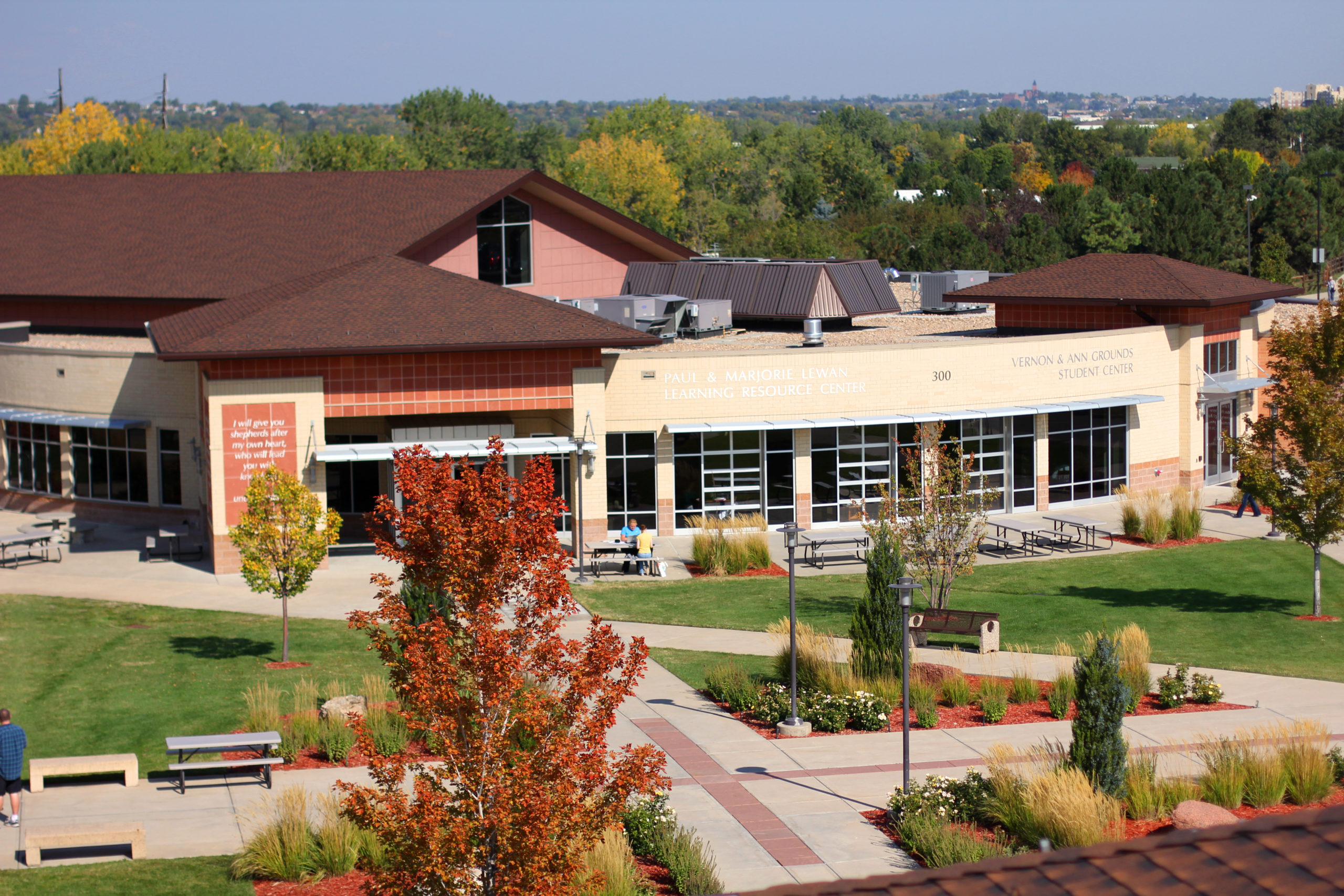Our Values and Commitments
Denver Seminary’s mission calls the entire Seminary community – all students, employees, and trustees – to “engage the needs of the world with the redemptive power of the gospel and the life-changing truth of Scripture.” This mission assumes a shared calling to live as the holy people of God in all dimensions of human life. No matter the work, task, context, community, or culture, all members of the Denver Seminary community commit themselves to making choices that express the redemptive character of the gospel, respecting and encouraging others, giving and receiving constructive feedback, praying for one another, and cultivating the disciplines needed for effective service.
Denver Seminary may initiate remedial or disciplinary action when these community values and behavioral commitments have been violated. All remedial and disciplinary action will be carefully enacted as per institutional policy outlined within the Employee and Student Handbooks, balancing the goals of redemptive restoration for the individual with the preservation of a godly community. Violations of these commitments, including failure to self-report offenses, will be addressed according to the severity and/or impact of each offense on the individual or community. This includes, but is not limited to bullying, harassment, violence, slander, demeaning comments or behavior, plagiarism, and cheating. In addition to the Employee and Student Handbooks, institutional policies containing procedures for addressing such violations are the Seminary’s General Code of Conduct, Sexual Misconduct Policy, Acceptable Use of Technology Policy, and various harassment policies and academic integrity policies. To this end, the Seminary reserves the right to impose differing sanctions in response to each offense, ranging from verbal warning to expulsion or termination of employment.
We make these commitments in order that all who come to Denver Seminary may flourish in community while following our shared calling to be the holy people of God. In this light, we, as a community, agree to these commitments (per Matthew 18:15-17; 1 Corinthians 6:13, 18-20, 10:31, 13:4-6; Galatians 6:1-5; Ephesians 5:1-21; Philippians 1:27; 1 Timothy 3:2) as follows:
Personal and Relational Health
We will foster connection with God and others, developing lives marked by self-control and peace, and seeking appropriate balance between work and rest. Such health includes seeking liberation from addiction, honest and vulnerable living, participation in the Church, and living in congruence with God’s desires. We will demonstrate respect for self and others through contextually sensitive and appropriate attire, self-care, and personal hygiene.
Redemptive Relationships
We will maintain a good reputation with all people, serving the marginalized and upholding relationships characterized by love, grace, and truth. We will use wise judgement as outlined in the scriptures and pursue reconciliation by taking initiative to resolve differences whenever possible and by responding with civility to others when they do the same.
In dialogue, we will listen to each other and respond with respect and a genuine desire to understand, even when consensus cannot be reached. We will endeavor to demonstrate the fruit of the Spirit (love, joy, peace, forbearance, kindness, goodness, faithfulness, gentleness, and self-control per Galatians 5:22-23) in all of our interactions with others.
Sexual and Gender Integrity
Denver Seminary’s Statement on Human Sexuality forms a framework for instruction on matters related to human sexuality. It also serves as a framework for employment and enrollment decisions as they may relate to sexuality.
Sexual integrity presupposes a commitment to God’s original design and intent for human sexuality as well as an admission that, because of the Fall, we are all sexually and relationally broken. It requires that we pursue fidelity to God’s overarching redemptive plan in every area of life, including sexuality. Therefore, we commit to abstaining from all forms of sexual engagement that distort God’s original intent for humanity to experience sexual relations solely in the context of heterosexual marriage. At the same time, we will demonstrate compassion for one another as we struggle with our respective brokenness. We commit ourselves to practicing celibacy in any relationship outside of a consensual heterosexual union and to exercising faithfulness within that union. We commit to expressions of congruence between experienced gender and biological sex.
We will support one another in all matters related to sexual integrity, recognizing the spiritual benefit of self-control and self-denial. If we struggle or fail in these pursuits, we will seek help and accountability.
Controlled Substances
We will respect Denver Seminary as a smoke-free, drug-free, and tobacco-free campus, and we will refrain from the consumption of alcohol in any public place on campus. Alcohol will not be provided by Denver Seminary at any school sponsored student event. In accordance with Federal standards, we will not possess, distribute, or use illicit substances, and we will only use prescription medication under the purview of a medical doctor.
Self-control
In dependence upon God, we will live sober and self-disciplined lives by consuming food and drink in moderation. We will pursue holy and righteous expressions of beauty, creativity, and art while avoiding that which is pornographic, violent, and demeaning to ourselves and others. We will be conscientious in our work-life balance, material pursuits, and use of interpersonal power. In all instances, we will humbly avail ourselves to relational accountability and receive critical feedback about our lives. We will seek the appropriate help and submit ourselves to remediation and discipline when necessary.
If we have an addictive struggle, however easily hidden or rationalized, we will seek help and accountability to prevent it from affecting ourselves, our work, others, and the community at large in harmful ways. The Seminary can help struggling individuals address their personal issues by providing various and appropriate forms of assistance.

